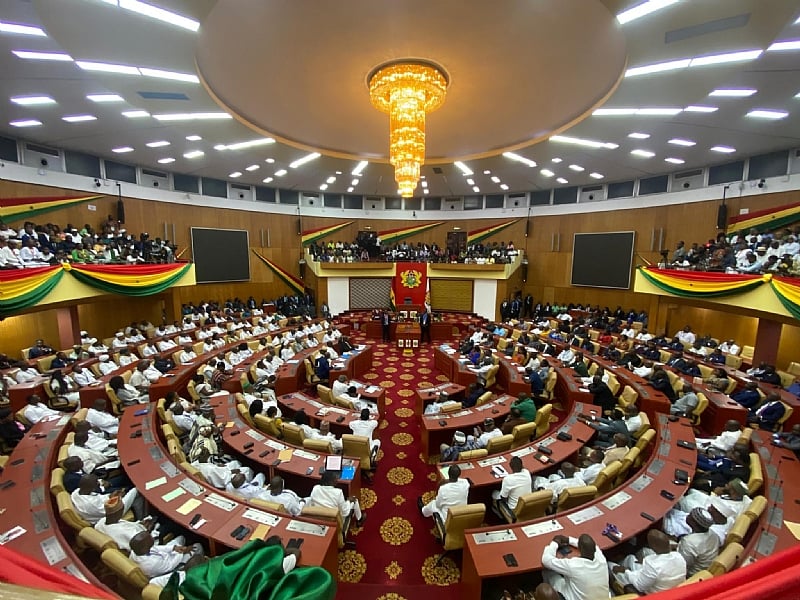The Ghanaian Parliament recently passed the Ghana Gold Board Bill 2025, a landmark legislation aiming to revolutionize the country’s gold industry. The bill establishes the Ghana Gold Board, a new entity tasked with regulating the entire gold sector, from purchasing and selling to exporting. The overarching goal is to inject much-needed transparency and traceability into the gold trade, ultimately boosting foreign exchange earnings and contributing to the stabilization of the Ghanaian cedi. The passage of the bill was celebrated by the Majority Leader, Mahama Ayariga, who lauded it as a historic achievement and a testament to the parliament’s commitment to fulfilling the trust placed in them by the Ghanaian people. He further suggested that the overnight deliberations leading to the bill’s passage marked the beginning of a 24-hour economy within the Parliament itself.
However, the bill’s journey through Parliament was not devoid of controversy. The Minority caucus vehemently opposed the legislation, arguing that it inadvertently promotes illegal mining activities, popularly known as “galamsey.” They staged a walkout during the bill’s consideration, protesting the First Deputy Speaker’s refusal to postpone deliberations until the following morning. This act of dissent highlighted the deep divisions within Parliament regarding the bill’s potential impact on the fight against illegal mining. The Minority’s concerns centered on the perceived legitimization of galamsey operations through the establishment of a centralized gold purchasing entity.
The Minority Leader, Alexander Afenyo-Markin, publicly questioned the government’s commitment to combating illegal mining, expressing alarm at the allocation of 4.6 billion Ghana Cedis to the policy. He argued that this substantial financial commitment contradicted the government’s purported stance against galamsey, suggesting that the new Gold Board would inadvertently serve as a conduit for funding illegal operations. Afenyo-Markin framed the bill as a betrayal of the government’s promises to address the galamsey menace, accusing them of becoming “Apostles who are promoting galamsey.” He further criticized the prioritization of funding for the Gold Board over other crucial sectors such as agriculture, women’s banking, and the development of a genuine 24-hour economy, suggesting that the allocation was politically motivated ahead of the 2024 elections.
The crux of the Minority’s argument lies in the bill’s focus on small-scale mining, which they equate with galamsey. They contend that by granting the Gold Board a monopoly over gold purchases from small-scale miners, the government is effectively regulating and legitimizing illegal operations. The Minority questioned the logic of establishing an entity to regulate galamsey while simultaneously injecting billions of Cedis into the sector. They viewed this as a contradictory approach that would ultimately exacerbate the problem rather than solving it. Their walkout served as a symbolic protest against what they perceived as the government’s misplaced priorities and its failure to address the devastating consequences of illegal mining.
The passage of the Ghana Gold Board Bill 2025 marks a significant development in the country’s gold industry, but its implementation will undoubtedly be closely scrutinized. The government maintains that the bill is a crucial step towards formalizing and regulating the sector, enhancing transparency, and increasing revenue. They argue that the Gold Board will play a vital role in combating illegal mining by providing a legitimate avenue for small-scale miners to sell their gold, thereby discouraging illicit trade. However, the Minority’s concerns about the potential for the board to inadvertently support galamsey activities remain a significant challenge that needs to be addressed.
The success of the Ghana Gold Board will ultimately depend on its ability to strike a delicate balance between promoting legitimate small-scale mining and effectively curbing illegal operations. The allocation of significant financial resources to the policy underscores the government’s commitment to the sector, but it also raises the stakes in terms of accountability and transparency. The coming months and years will be crucial in determining whether the Gold Board can live up to its promise of transforming the Ghanaian gold industry while simultaneously mitigating the environmental and social damage caused by illegal mining. The ongoing debate between the Majority and Minority in Parliament reflects the complexities and challenges surrounding the regulation of a sector that holds both immense economic potential and significant risks.














